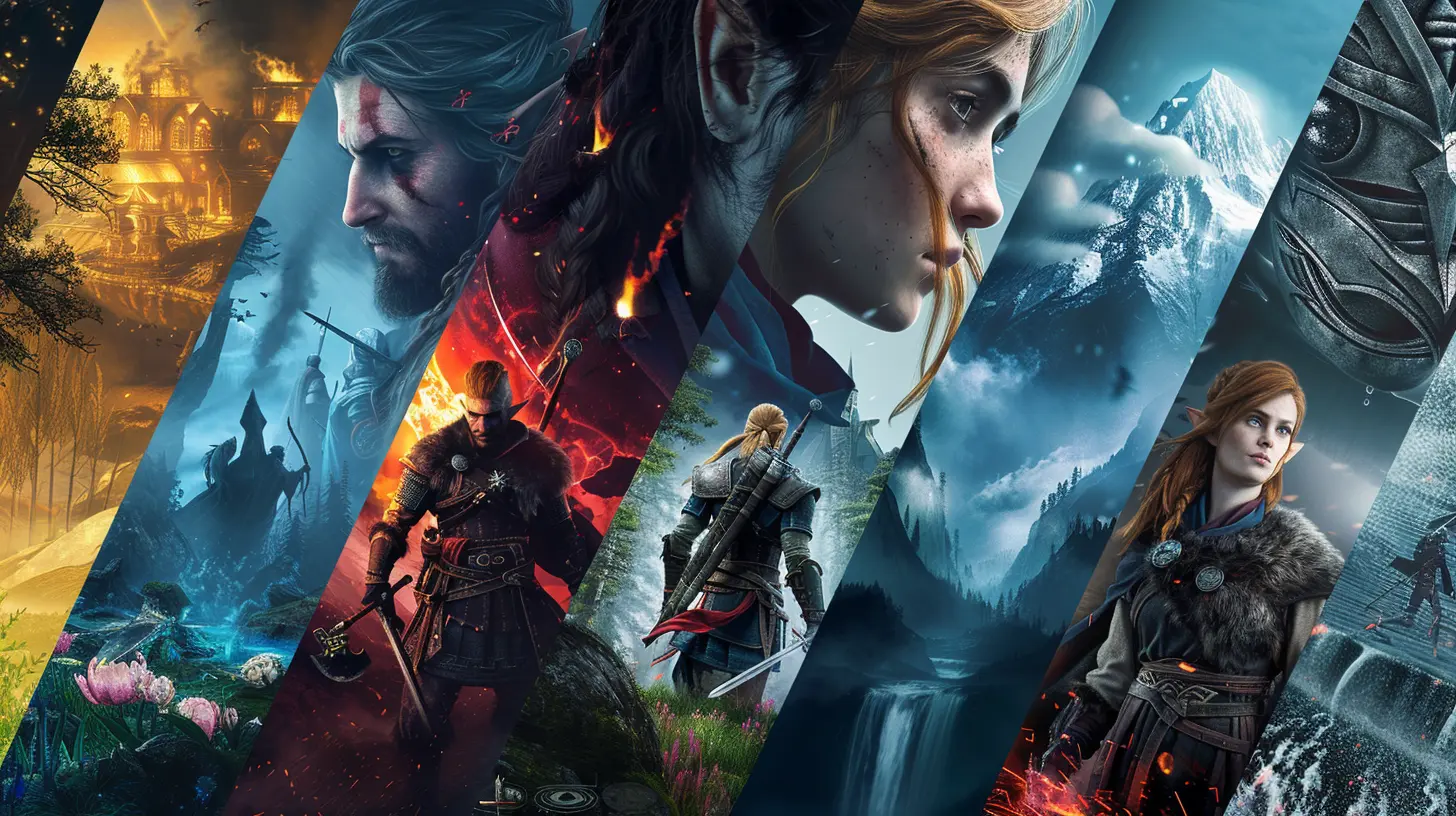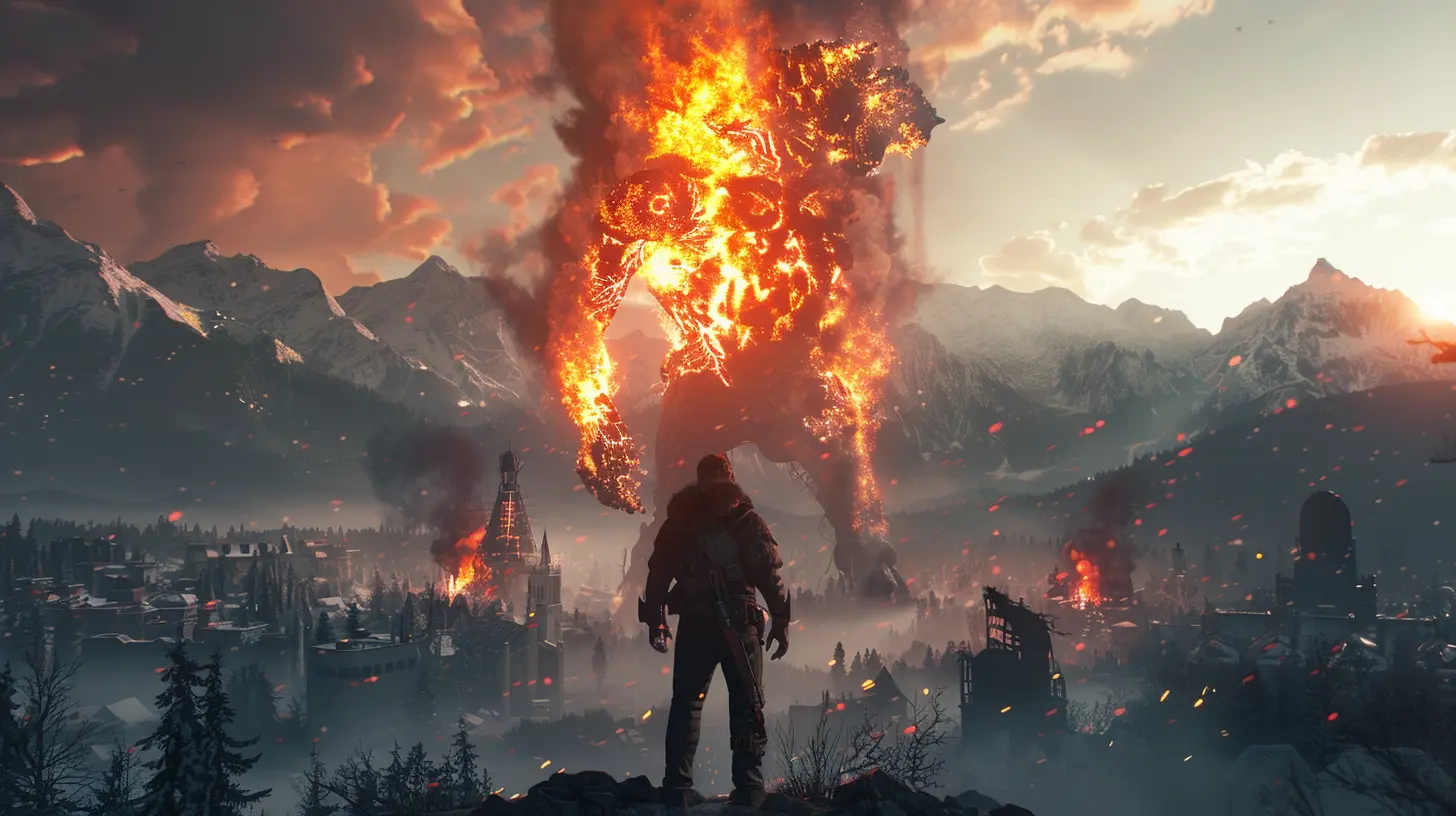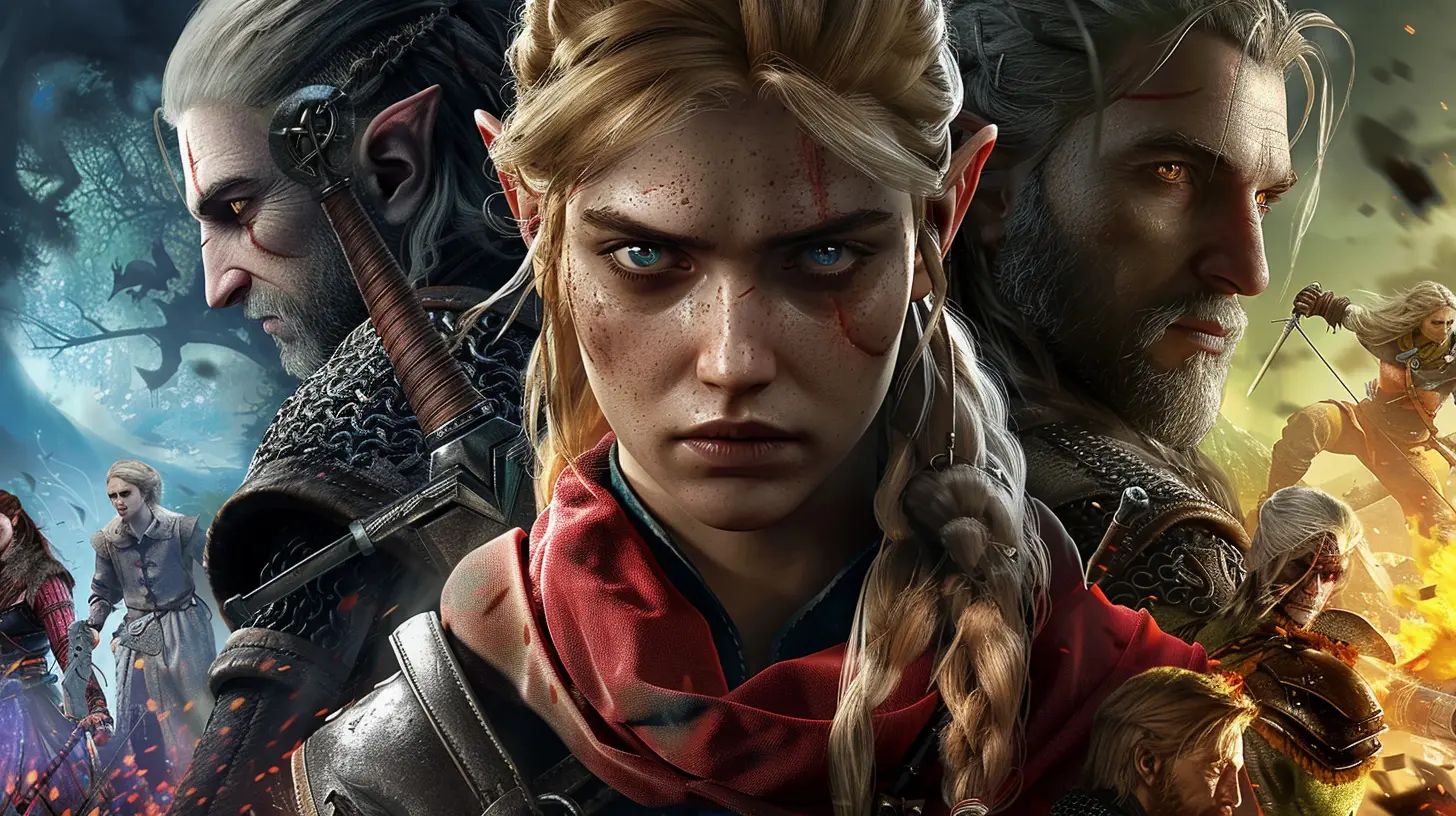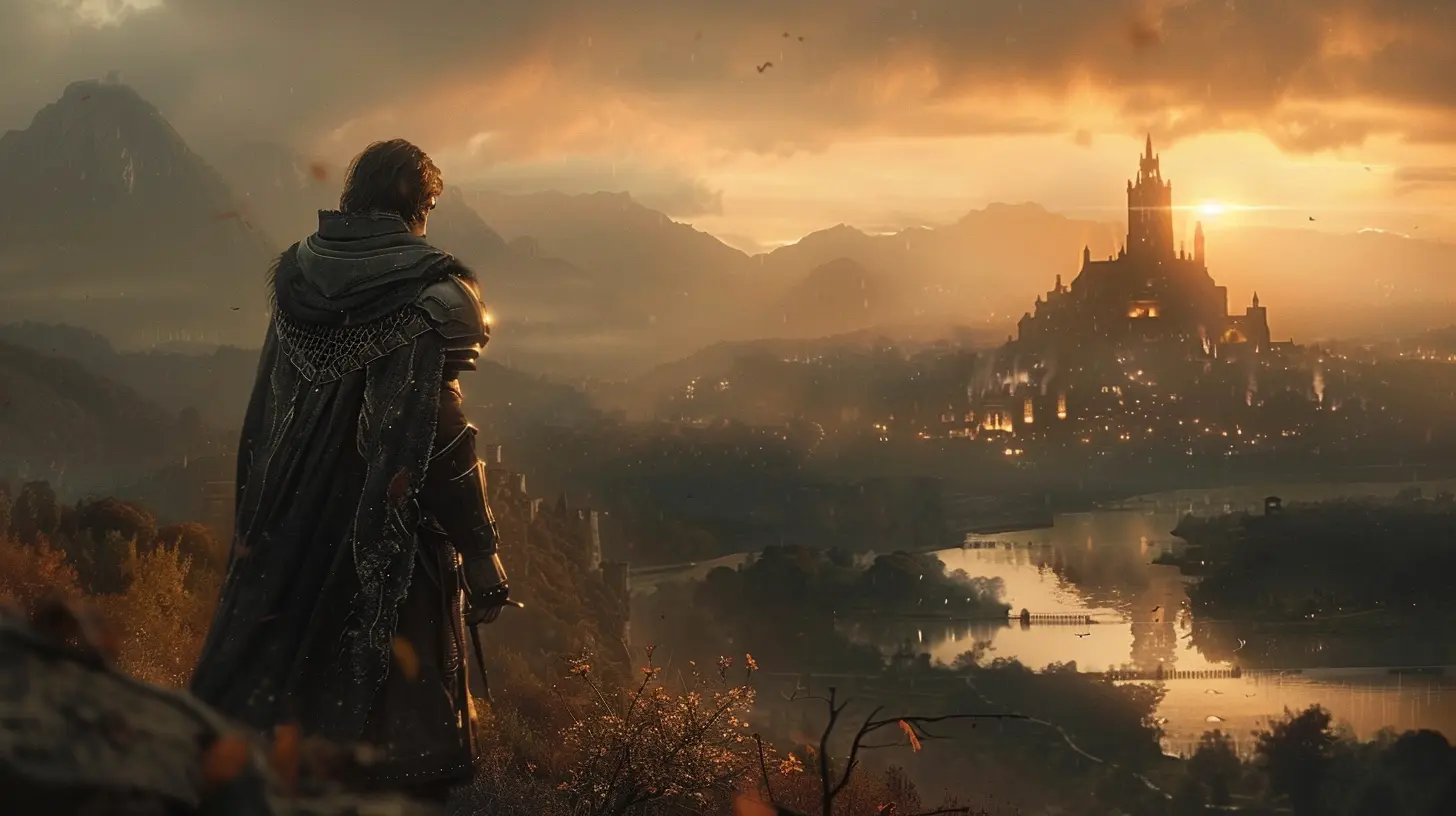Why Story-Driven Games Are Dominating the Industry
27 October 2025
Gamers are no longer just button mashers or mouse clickers — they're explorers, detectives, survivors, and even emotional wrecks (in the best way possible). If you've found yourself skipping multiplayer modes just to dive headfirst into a rich narrative, you're not alone. Story-driven games are taking over the gaming industry, and honestly? It’s about time.
In today's gaming landscape, gripping plots, emotional depth, and unforgettable characters aren't just bonuses — they're the main event. But what exactly is it about these story-driven experiences that have players so hooked? Let’s break it down.
What Are Story-Driven Games Anyway?
Before we jump into why they're dominating, let’s quickly define what we're talking about.Story-driven games are titles where narrative takes center stage. These aren't just games with a story tacked on — they're designed around it. Think of games like The Last of Us, Red Dead Redemption 2, God of War, or Life is Strange. They offer complex characters, emotional stakes, branching dialogues, and mind-blowing plot twists.
In short: they’re your favorite Netflix series, but you get to be the protagonist.
Why the Shift Toward Storytelling?
You might be wondering: Why now? Why are devs putting more thought into storytelling than ever before?1. Gamers Have Evolved
Let’s be real — the gaming crowd has grown up. Many of us who started gaming back in the days of pixels and beeps now crave something deeper. Players today want meaning, not just high scores. They’re looking for emotional engagement and experiences that stick with them long after the controller is put down.We're not just playing for fun anymore — we’re playing to feel something.
2. Technology Caught Up
We can now render facial expressions that show heartbreak, environments that ooze atmosphere, and voice acting that could rival Hollywood. With this kind of tech, game studios can finally tell stories with as much nuance and depth as films or books — and sometimes, even better.In other words, the tools to create these immersive worlds are more powerful and accessible than ever before.
3. Stronger Connection = More Impact
When you’re busy blasting aliens or solving puzzles, a good story can be the glue that keeps it all together. Story-driven games invest in characters that players care about.Remember the first time Joel called Ellie “baby girl” in The Last of Us? Or when Arthur Morgan started questioning his life choices in Red Dead Redemption 2? That’s the kind of storytelling that punches you in the gut (in a good way).
Emotional Resonance: The Heart of the Experience
Let’s face it, there’s nothing more satisfying than a story that hits you right in the feels.Games That Make You Cry (And Why We Love Them)
Some of the most beloved titles out there are tearjerkers. Games like To The Moon, Firewatch, and What Remains of Edith Finch have one thing in common — they’re emotionally charged. And they don’t need massive budgets or explosions to leave a mark.When players emotionally invest in characters, they’re not just observing a story — they’re living it. That bond creates unforgettable gaming experiences.
Empathy Through Interactivity
Here’s where games have a leg up on movies and books: interactivity. You don’t just watch someone make a decision — you make it yourself. Want to save a friend but risk your own life? That’s on you. Want to lie or tell the truth? Your call.This builds empathy on a whole new level. You start thinking like the character. Feeling what they feel. And when the story hits its climax, it feels personal.
Rich Worldbuilding: More Than Just a Backdrop
One thing story-rich games do incredibly well? Worldbuilding.Immersive Universes You Don’t Want to Leave
From the broken but beautiful post-apocalyptic ruins in Horizon Zero Dawn to the Norse mythology of God of War, these games create worlds that feel lived in. Every building, every scrap of paper, every NPC tells a story.You’re not just moving from point A to point B — you’re uncovering secrets, hearing local legends, piecing together history, and figuring out where you fit into it all.
This kind of storytelling makes the game world more than just a stage for action — it becomes a character itself.
Player Choice and Branching Paths
One of the most compelling aspects of story-driven games? They hand you the wheel.Your Choices Shape the Outcome
In games like Detroit: Become Human, Mass Effect, or The Witcher 3, the story bends and twists based on what you do. Save one character, and another may die. Choose peace, and war might still find you.This kind of agency keeps players engaged and coming back to see how different decisions could rewrite the story. It’s like having a “Choose Your Own Adventure” book on steroids.
And let’s be honest — everyone loves being in control of their own fate.
The Rise of Narrative Indie Games
Big-budget titles get a lot of the spotlight, but indie games are absolutely killing it in the story department.Small Teams, Big Emotions
Games like Oxenfree, Night in the Woods, and Undertale prove you don’t need a AAA budget to tell a great story. These titles focus on character development, dialogue, and emotion — and they often dare to experiment with storytelling in bold and unique ways.The result? Cult classics that stick with players for years.
Indie devs aren’t afraid to take risks, and that risk-taking leads to some truly unforgettable experiences.
Streamers and Content Creators Fuel the Fire
Another reason story-driven games are blowing up? Streamers and YouTubers can’t get enough of them.Story Games Make Great Content
People love watching others react to the same emotional rollercoasters they went through. That shared experience — the laughs, the gasps, the tears — builds community.Plus, streamers often replay these games to explore different choices or endings, giving the games longer lifespans and more exposure.
It's free marketing with a personal twist — and it’s working.
Awards and Industry Recognition
Let’s not forget the hardware. Story-driven games consistently walk away with Game of the Year trophies and other accolades.Critics Love a Good Narrative
Look at the past winners of major awards — The Last of Us Part II, God of War, Elden Ring (yes, even with minimal dialogue, it had a deep lore-driven story), and more — they all had strong narratives.This shows just how much value the industry places on good storytelling. It’s no longer just about shiny graphics or online modes — it’s about how the game makes you feel.
What This Means for the Future of Gaming
So, with all that said... where’s it headed?Story Will Keep Leading the Charge
As gaming matures, narratives will become even more important. We’ll see even deeper characters, more innovative storytelling methods, and tighter integration between gameplay and narrative.Expect more titles to blur the lines between game and movie. And we’re here for it.
VR and Storytelling? A Match Made in Heaven
Virtual reality already lets gamers step into new worlds — imagine combining that with top-tier storytelling.A VR story game that makes you laugh, cry, or fear for your life? Yeah, it’s coming.
How You Can Get Into Story Games
If you’re new to the genre, or want to explore more story-driven titles, here are a few starting points:- The Last of Us Series – Emotional, gritty, and unforgettable.
- Red Dead Redemption 2 – A western epic with deep character arcs.
- Life is Strange – A supernatural coming-of-age tale about choices and consequences.
- Firewatch – A slow-burning mystery set in the Wyoming wilderness.
- Disco Elysium – A unique RPG filled with philosophical depth and twisted humor.
Each of these games offers something different, but all will leave you raving about their storylines.
Final Thoughts
Story-driven games aren’t just dominating the industry — they’re redefining it. They tap into the emotional core of players, offer deep immersion, and create unforgettable moments that no high-score or kill streak can match.In a world that’s increasingly craving connection and meaning, these games deliver — and they’re only getting better.
So, the next time someone tells you video games are a waste of time, just point to your latest story-rich adventure. Because storytelling isn’t just the future of gaming — it’s the soul of it.
all images in this post were generated using AI tools
Category:
Game Reviews ArchiveAuthor:

Madeleine McCaffrey
Discussion
rate this article
1 comments
Morrow McCord
Stories elevate gaming to art!
October 28, 2025 at 4:51 AM

Madeleine McCaffrey
Absolutely! Stories enrich the gaming experience, allowing players to connect emotionally and immerse themselves in new worlds, truly elevating gaming to an art form.


